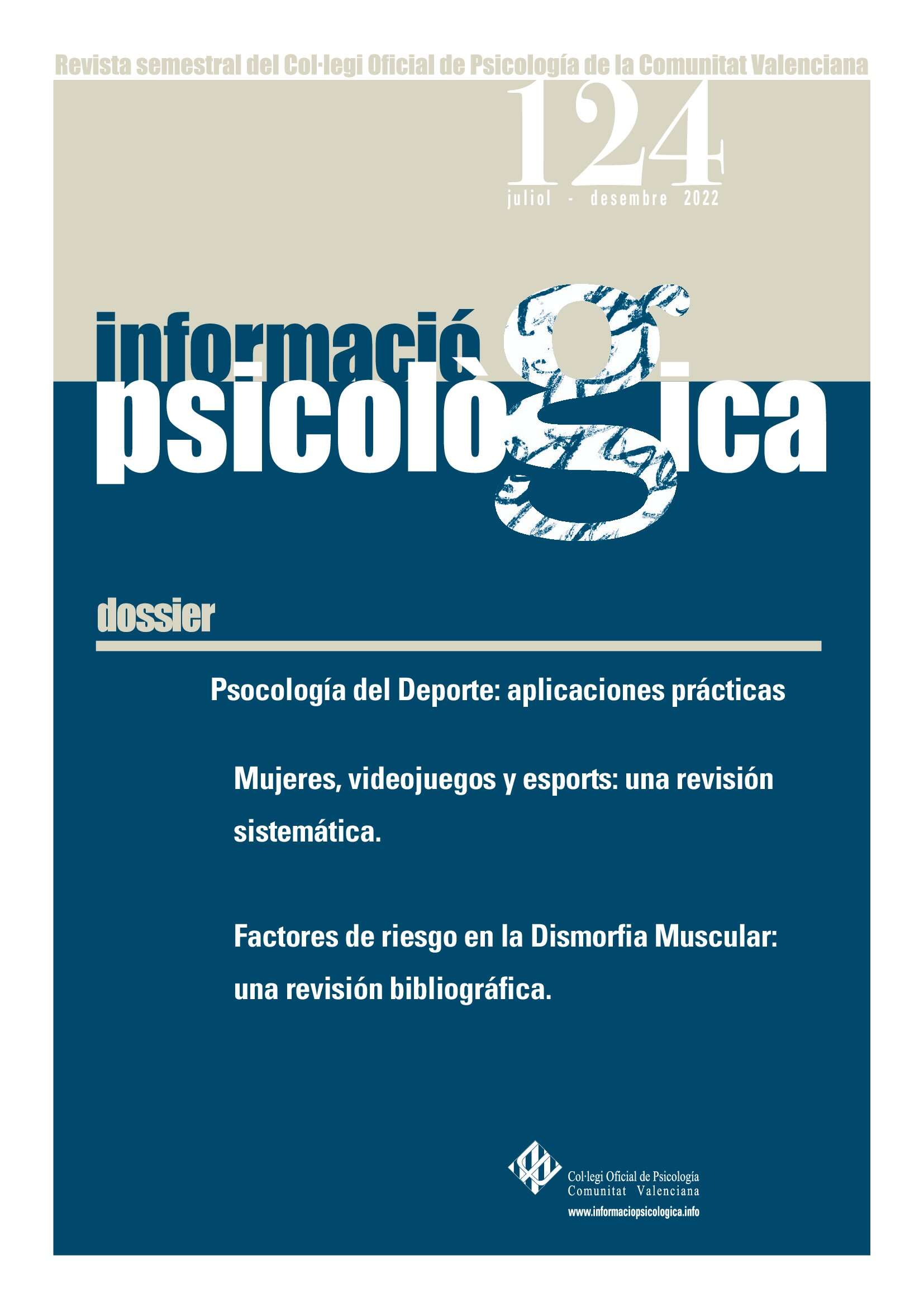Educación emocional en el balonmano Morvedre.
DOI:
https://doi.org/10.14635/ipsic.1943Palabras clave:
Educación emocional, inteligencia emocional, IE, emociones, deporte.Resumen
El artículo describe una experiencia en educación emocional en deporte, en concreto con once jugadoras de un equipo infantil femenino de balonmano. El principal objetivo, es integrar la educación emocional a lo largo de toda la competición, con una tarea semanal para cada partido o jornada, que se realiza individualmente a través de unos cuadernillos emocionales elaborados para la intervención y que sirven de base para realizar dinámicas grupales breves. Los cuestionarios TMMS-24 y EAF, sirvieron de pre y post evaluación de la intervención, cuyos resultados muestran cambios significativos en variables como la actitud hacia el juego duro y la victoria, así como en atención emocional. Se concluye que, un buen trabajo psicológico continuo a lo largo de la temporada, poniendo el acento y fijándose en un mejor aprovechamiento del tiempo de las jugadoras en las instalaciones y una involucración de padres y técnicos en la misma actividad, puede ayudar a los/las jóvenes deportistas a mejorar ciertas habilidades emocionales y, por lo tanto, su rendimiento y bienestar en pista.
Descargas
Citas
Angulo, R. y Albarracín, A.P. (2018). Validez y confiabilidad de la escala rasgo de metaconocimiento emocional (TMMS-24) en profesores universitarios. Revista Lebret, 10, 61-72.
Bar-On, R. (1997). Bar-On emotional quotient inventory. Multi-health systems.
Boixadós, M. (1998). Avaluació del clima motivacional i de les actituds de fairplay en futbolistes alevins i infantils i efectes de l’assessorament psicològic a llurs entrenadors (Tesis doctoral). Universitat Autònoma de Barcelona.
Cabello, R. y Fernández Berrocal, P. (2019). ¿Qué es la inteligencia emocional? En F. Martínez, E. G. Fernández- Abascal, y F. Palmero (Coords.). Todo lo que usted siempre quiso saber sobre las emociones (pp. 155-163). Pirámide.
Cantón, E. y Checa, I. (2012). Los estados emocionales y su relación con las atribuciones y las expectativas de autoeficacia en el deporte. Revista de Psicología del Deporte, 21(1), 171-176.
Corrales, A. (2020). Cuaderno de la deportista (Balonmano). Publicaciones internas Balonmano Morvedre.
Fernández Berrocal, P., Extremera, N. y Ramos, N. (2004). Validity and reliability of the Spanish modified version of the Trait Meta-Mood Scale. Psychological Reports, 94(3), 751-755.
García-Lluch, J.J. (2017). Cuaderno del deportista (Fútbol). Publicaciones internas Colegio Salgui
Goleman, D. (1996). Inteligencia emocional. Kairós.
González Vélez, J. L. (2010). Inteligencia emocional y motivación deportiva (Tesis doctoral). Universidad de Las Palmas de Gran Canaria, Facultad de Formación del Profesorado
Mestre, J.M. y Fernández Berrocal, P. (2007). Manual de inteligencia emocional. Pirámide.
Mestre, J.M. y Guil, R. (2012). La regulación de las emociones. Una vía a la adaptación personal y social. Pirámide.
Miralles, R., Filella, G. y Lavega, P. (2017). Educación física emocional a través del juego en educación primaria: ayudando a los maestros a tomar decisiones. Retos: Nuevas tendencias en Educación Física, Deporte y Recreación, 31, 88-93.
Palou, P. y Borras, P. A. (2019). Educación en valores en técnicos deportivos; efectos de una intervención sobre el fairplay, el engaño y la astucia en jóvenes. Journal of Sport and Health Research. 11(1): 29-40.
Pena, M. y Repetto, E. (2008). Estado de la investigación en España sobre Inteligencia Emocional en el ámbito educativo. Revista Electrónica de Investigación Psicoeducativa, 15, 6(2), 400-420
Petrides, K.V. y Furnham, A. (2001). Trait emotional intelligence: Psychometric investigation with reference to established trait taxonomies. European Journal of Personality, 15(6), 425-448.
Puertas, P., González, G. y Sánchez, M. (2017). Influencia de la práctica físico deportiva sobre la Inteligencia Emocional de los estudiantes: Una revisión sistemática. ESHPA - Education, Sport, Health and Physical Activity. 1(1): 10-24. doi: http://hdl.handle.net/10481/48957
Rachman, S. (1980). Emotional processing. Behaviour research and therapy, 18(1), 51-60.
Rachman, S. (2001). Emotional processing, with special reference to post-traumatic stress disorder. International Review of Psychiatry, 13(3), 164-171.
Riera, J., Caracuel, J.C., Palmi, J. y Daza, G. (2017). Psicología y deporte: habilidades del deportista consigo mismo. Apunts. Educació Física i Esports, 127, 82-93
Ros, A., Moya, F.J. y Garcés, E. J. (2013). Inteligencia emocional y deporte: situación actual del estado de la investigación. Cuadernos de psicología del deporte, 13(1), 105-112.
Salovey, P. y Mayer, J.D. (1990). Emotional intelligence. Imagination, cognition and personality, 9(3), 185-211.
Salovey, P., Mayer, J. D., Goldman, S. L., Turvey, C. y Palfai, T. P. (1995). Emotional Attention, clarity, and repair: exploring emotional intelligence using the trait meta-mood scale. Emotion, Disclosure, and Health, 125-154.
Shahid, S., Krahmer, E. J. y Swerts, M. (2008). Alone or together: Exploring the effect of physical co-presence on the emotional expressions of game playing children across cultures. In International Conference on Fun and Games, 94-105. Springer, Berlin, Heidelberg.
Zaccagnini, J.L. (2004). Inteligencia emocional. La relación entre pensamientos y sentimientos en la vida cotidiana.Biblioteca Nueva.
Descargas
Publicado
Cómo citar
Número
Sección
Licencia
Nota de Copyright-Los autores que publican en esta revista están de acuerdo con los siguientes términos:
Los autores conservan los derechos de autor y garantizan a la revista el derecho de ser la primera publicación del trabajo al igual que licenciado bajo una Creative Commons Attribution License que permite a otros compartir el trabajo con un reconocimiento de la autoría del trabajo y la publicación inicial en esta revista.
Los autores pueden establecer por separado acuerdos adicionales para la distribución no exclusiva de la versión de la obra publicada en la revista (por ejemplo, situarlo en un repositorio institucional o publicarlo en un libro), con un reconocimiento de su publicación inicial en esta revista.
Se permite y se anima a los autores a difundir sus trabajos electrónicamente (por ejemplo, en repositorios institucionales o en su propio sitio web) antes y durante el proceso de envío, ya que puede dar lugar a intercambios productivos, así como a una citación más temprana y mayor de los trabajos publicados







